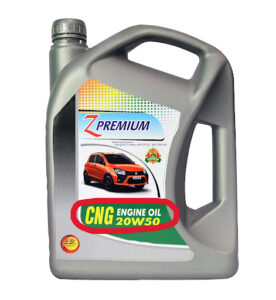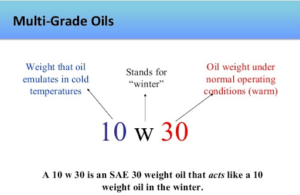Engine oil is an essential element of your car engine. Like human blood, engine oil is similar to an automobile engine, and it is responsible for reducing friction, cooling, heat, and fuel efficiency.
Here are all the essential things to remember while choosing the correct engine oil for your car. Read to know more!
Understanding the Engine Oils
You must have seen a bottle of engine oil with ’20W50′ or ’15W40′ or something like that. These are not any simple words and numbers, and this is the grading scale to the engine oil by the Society of Automotive Engineers (SAE).
This reading describes the consistency of the engine oil, which suggests the oil’s capability to resist deformation caused by wear and tear and stress. Thus, the consistency or viscosity refers to the thickness of the engine oil.

An extremely viscous fluid will be thick, whereas a low one will be liquid. When the engine is cold, the oil in the engine is exceptionally thick. But, once an engine is under-use, that same oil becomes liquid and thin. But as soon as you begin your engine, you start the car with a dense engine oil which later causes friction-induced heat.
Understanding the Grades of Engine Oil
Example- 20W50
Here,
- 20= Rating of the oil at 0-degree Fahrenheit or -17.8 degrees °C. It implies that the oil should have a maximum viscosity or flow at a low temperature.
- W= Winter. The lower the “W” number, the better the oil’s minimum temperature or cold start performance
- 50= Oil must fall within certain viscosity limits at 100°C at high temperatures. Remember: the lower the number, the thinner the oil will be.
- Engine oil is graded as XW-XX
You may have also seen the American Petroleum Institute (API), which tells the performance rating of the oil. For example- SM for gas, CF for diesel, etc. Similarly, ACEA is a European business body of European vehicle makers, and it covers the performance rating of the oil.
Tips to Choose the Suitable Engine Oil for your Car
- Check your Owner’s Manual
Your car manufacturer has already created it simple for you. If you check your owner’s manual, you will realize that it lists oil weights. Go to a mechanic shop and understand from there. However, in extreme seasons, you may wish to regulate consequently.

- The Consistency Grade
All engine oils can have a consistent grade, and it is separated by two numbers separated by a W. For example- 20W50. The number tells you the consistency of the oil once it is cold, and it tells how thick this oil will be once you start your automobile during a winter night.

The number after W, such as 50 in 20W50, is the high-temperature grade, ranging from 60 to 80. Once the engine runs, it indicates the consistency of the oil. The lower the amount, the lower the consistency at 100ºC, or the agent is the oil. Today, the most common ones are between 16-40.
- Choosing the Right Engine Oil

Knowing the correct engine oil is vital as different cars have different oils. Here is a list of different engine oils.
- Mineral Engine Oil
This oil is one of the oldest generations of oils. Mineral oils are refined fossil fuel oils that perform under a suitable temperature range, and it is also cheaper than other forms of oils.
Nowadays, mineral oils are used in old cars. The most significant disadvantage with oil is that they provide very little or no lubrication and protection against friction-induced heat. Also, they perform inefficiently in colder temperatures and are prone to breakdown in high-temperature uses.
- Semi-Synthetic Engine Oil
Semi-Synthetic oil is a combination of minerals and synthetic that offers the affordability of minerals and synthetic performances. They supply the maximum amount of protection compared to mineral oils, also called synthetic mix oil. It has a touch of synthetic engine oil merging in with oil to increase its properties while not increasing the oil price.
The addition of synthetic oil enhances its consistency and wear resistance at higher temperatures and stress. Synthetic-blend motor oils can even supply higher performance at lower temperatures than mineral oils.
- Full Synthetic Engine Oil
Full artificial oil delivers outstanding protection and aids in higher fuel potency. Synthetic oils bear intensive treatment within the workplace to form them considerably superior to their counterparts.
The method involves breaking down the oil into the most basic molecules that remove unwanted substances and impurities to a high degree. Synthetic oil molecules are consistent in size and form, providing superior lubrication.
Full artificial oil performs at its optimum in low or high temperatures or under extraordinary stress.
- The Performance Level
It indicates the build and model of engines during which the oil is used. The specification drives it. Every engine desires a selected oil that the manufacturer should approve of your automobile. The oil is thoroughly checked in testing and engine test labs chosen explicitly by the automobile makers to be approved.
Conclusion
We hope that we have answered the question that you were looking for. If you have any queries regarding this topic, services, or want to buy a Second-Hand Car in Delhi NCR, you can contact Motofoto, and they will guide you regarding the same.



